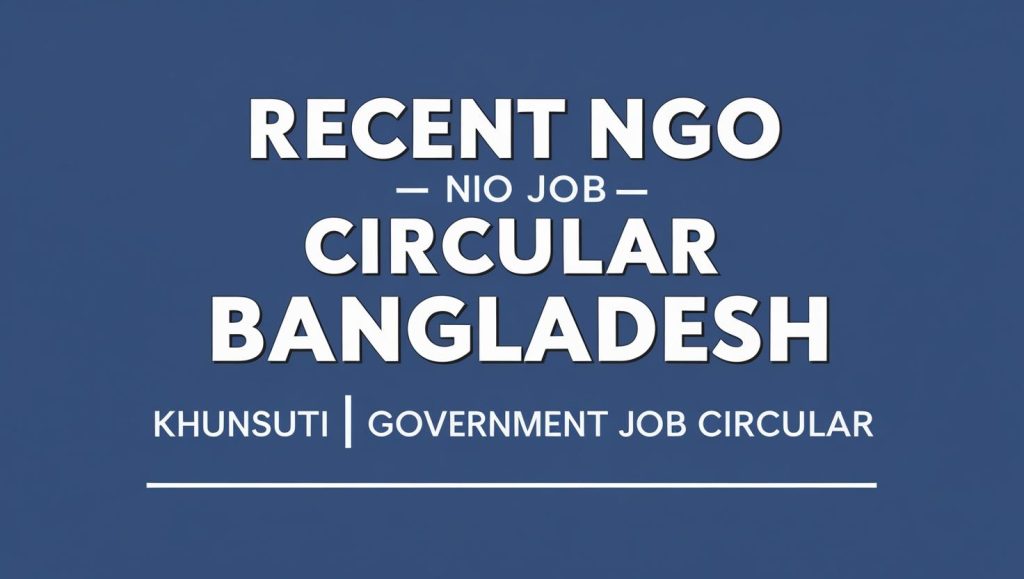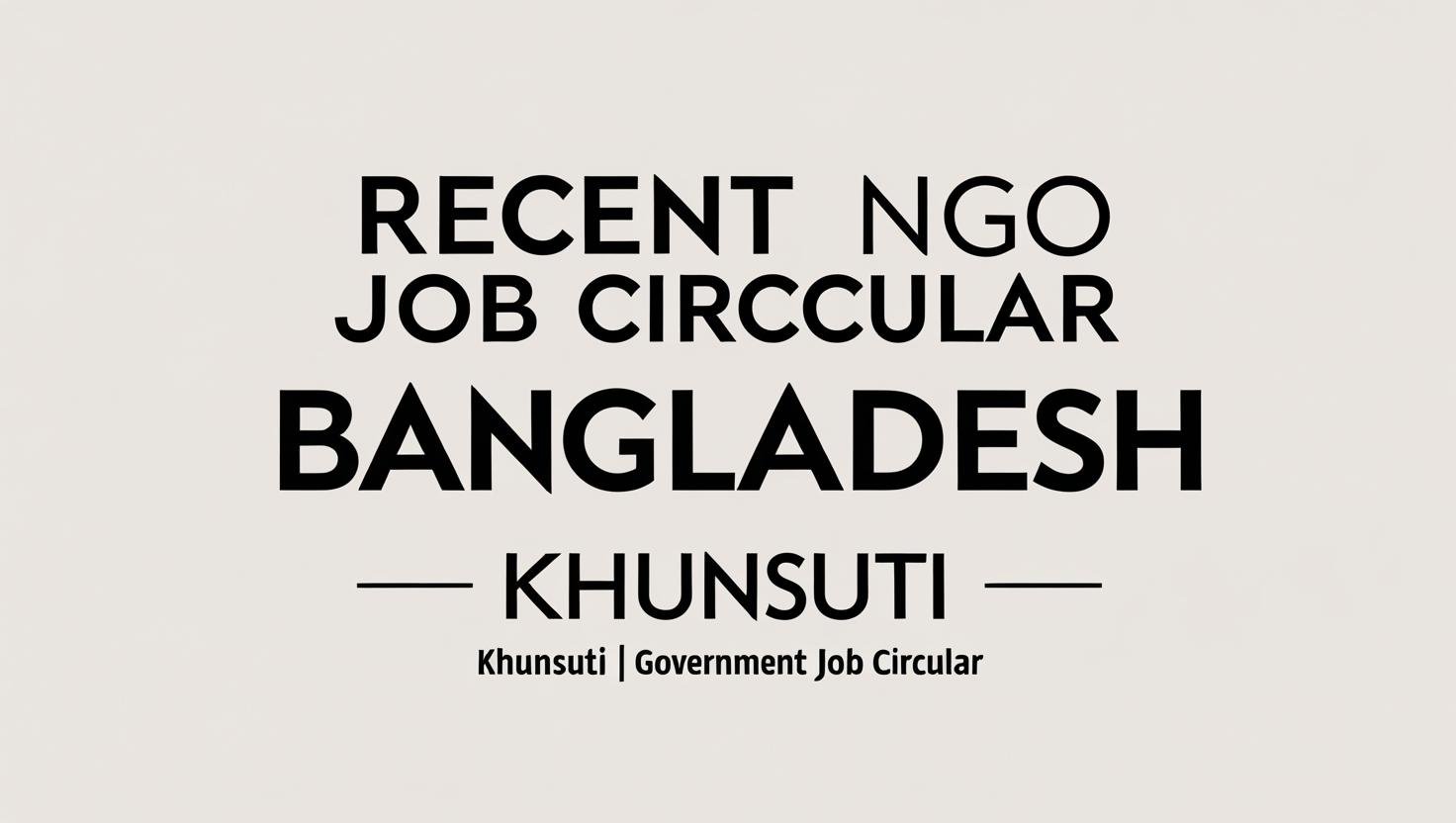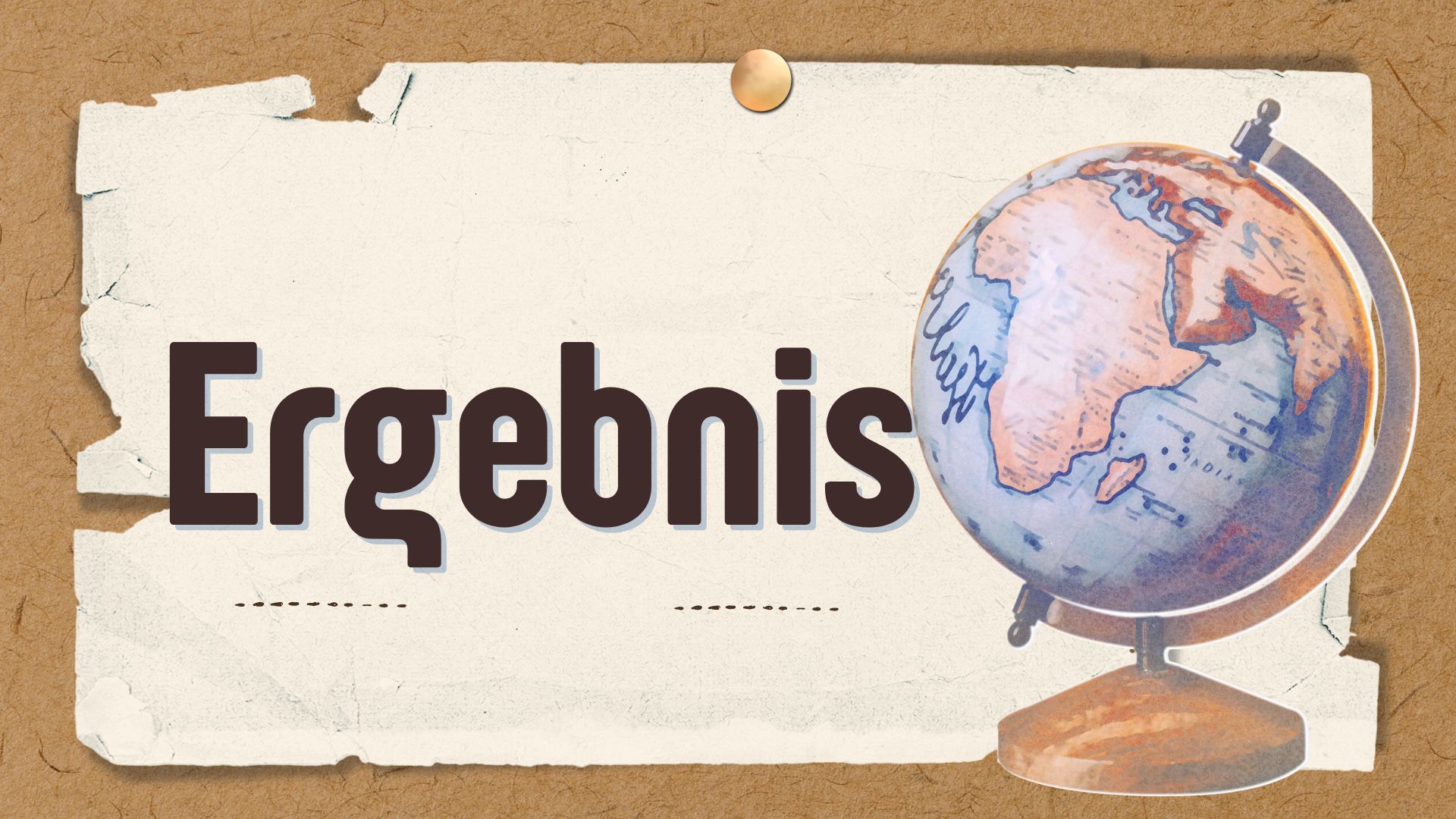Finding employment in non-governmental organizations (NGOs) is a great opportunity for individuals who are passionate about making a difference in society. In Bangladesh, recent NGO job circulars are announced frequently, making it essential for job seekers to stay updated. This article will guide you through the current landscape of NGO job openings in Bangladesh, what to look for, and how to prepare your application effectively.
Bangladesh has a booming nonprofit sector with various organizations working in different fields such as education, health, human rights, and disaster relief. Each job circular usually specifies the position, qualifications, and responsibilities. It’s important to read each announcement carefully to ensure you meet the requirements.
Key Features of Recent NGO Job Circulars
- Position Title: Clearly indicates the role available.
- Job Responsibilities: Provides insights into what is expected from the candidate.
- Qualifications: Details the educational background and experience required.
- Application Deadline: Specifies the last date to apply, which is crucial for keeping track of your applications.
- Contact Information: Lists where to send your application or who to reach out to for questions.
Where to Find the Latest NGO Job Circulars
You can discover the latest job openings by visiting various sources. Here are some excellent websites that regularly post NGO job circulars in Bangladesh:
| Website | Description |
|---|---|
| BDJobs | The largest job portal in Bangladesh with extensive listings, including many NGOs. |
| Jobs in Bangladesh | Focused on job vacancies across different sectors, including NGOs. |
| BRAC | A leading NGO in Bangladesh that frequently posts job openings on their site. |
| ICDDR,B | Research and healthcare-focused NGO with ongoing job postings. |
How to Prepare for NGO Job Applications
When you find a job circular that interests you, preparing your application is crucial. Follow these essential tips:
- Tailor Your Resume: Customize your resume to fit the specific job role. Highlight relevant experience and skills.
- Write a Strong Cover Letter: Explain your motivation for applying and how your background aligns with the organization’s goals.
- Gather Necessary Documents: Ensure you have copies of degrees, certificates, and any other required documentation.
- Practice Interview Skills: Anticipate interview questions and practice your answers to demonstrate confidence.
Why Work in an NGO?
Many individuals choose to work in NGOs due to the fulfilling nature of the work. Here are a few reasons:
- Make a Positive Impact: Your work can directly influence communities and contribute to social change.
- Opportunities for Growth: NGO jobs often provide training and development opportunities, enhancing your skills.
- Networking: Working in NGOs allows you to meet like-minded individuals and professionals who share your passion.
As you consider applying for positions, remember that the nonprofit sector values dedication and a genuine desire to help others. Keeping track of recent NGO job circulars in Bangladesh will help you seize opportunities as they arise.
If you want to stay updated on new job postings, make sure to follow NGOs and recruitment websites on social media platforms. These channels often share the latest job openings in real-time, helping you apply promptly.
With the right preparation and a positive attitude, you can find meaningful work within Bangladesh’s vibrant NGO sector. Good luck with your job search!
The Role of NGOs in Bangladesh’s Development

In Bangladesh, non-governmental organizations (NGOs) play a vital role in driving the country’s development across various sectors. These organizations focus on poverty alleviation, education, health care, women’s empowerment, and environmental sustainability, significantly impacting the lives of millions. Their work complements the efforts of the government and provides resources and support to underserved communities.
NGOs help bridge gaps in essential services where government efforts may fall short. They identify the specific needs of communities and mobilize resources to address these needs effectively. By engaging with local populations, they ensure that the assistance provided aligns with the community’s demands and culture.
One of the central roles of NGOs is poverty reduction. Bangladesh, despite its impressive economic growth, still grapples with high levels of poverty. NGOs implement programs that provide:
- Microfinance services to help individuals start small businesses
- Vocational training programs to enhance employability
- Community-based health initiatives to improve health outcomes
This approach empowers individuals with skills and resources, fostering a sense of independence and economic stability. Organizations like BRAC BRAC and Grameen Bank Grameen Bank exemplify this model by providing financial services to the rural poor, helping them uplift their living standards.
Education is another critical area where NGOs contribute significantly. Literacy rates in Bangladesh have seen improvement due to the initiatives led by NGOs. They operate schools, provide scholarships, and facilitate adult education programs. These organizations often reach out to marginalized groups, including girls and children with disabilities, ensuring they receive the education they deserve.
Here are a few NGOs that focus on education in Bangladesh:
- ActionAid Bangladesh ActionAid
- Save the Children Save the Children
- Plan International Plan International
Health care is another domain where NGOs have made notable contributions. They address public health challenges by providing essential health services, promoting hygiene, and educating the community. Programs aimed at maternal and child health, immunization drives, and the distribution of nutritional supplements play a critical role in improving the overall health of the population.
Furthermore, NGOs in Bangladesh are at the forefront of promoting women’s empowerment. They support gender equality by advocating for women’s rights, organizing leadership training, and enabling women to participate actively in various sectors. Such initiatives help challenge societal norms and create a more equitable environment.
Given the increasing impact of climate change, many NGOs are also focusing on environmental sustainability. They work on initiatives to promote conservation, raise awareness about climate change, and contribute to disaster management efforts. The presence of organizations such as the Greenwatch illustrates the commitment to environmental issues among NGOs in Bangladesh.
To highlight the diverse roles of NGOs, consider the following table showcasing key contributions:
| Sector | NGO Contribution |
|---|---|
| Poverty Alleviation | Microfinance, vocational training |
| Education | Schools, scholarships, adult education |
| Health Care | Health services, hygiene education |
| Women Empowerment | Advocacy, leadership training |
| Environmental Sustainability | Conservation projects, awareness campaigns |
It is important to recognize the collaborative nature of development in Bangladesh. NGOs work alongside government agencies and international organizations, maximizing their resources and expertise. This synergy enhances the effectiveness of development interventions and leads to sustainable results.
NGOs are instrumental in shaping Bangladesh’s development landscape. Their commitment to addressing core societal challenges, from poverty to education, has led to strides in improving the lives of the people. By continuing to support NGOs, both local and international communities can contribute to the sustained growth and development of Bangladesh.
How to Tailor Your CV for NGO Job Applications
Applying for jobs in Non-Governmental Organizations (NGOs) can feel different compared to corporate positions. This uniqueness stems from the specific skills and experiences that are often valued in non-profit settings. Tailoring your CV to reflect these nuances is essential.
Understand the NGO’s Mission and Goals
Before you start crafting your CV, take the time to research the NGO you are applying to. Understanding their mission and goals will allow you to align your experience and skills with what they value. Consider these questions:
- What are the main focus areas of the NGO?
- What is their approach to problem-solving?
- Are they more project-oriented or community-focused?
Highlight Relevant Experiences
Your work history should reflect experiences that are relevant to the NGO sector. Include not only professional jobs but also volunteer roles, internships, and community service. Here’s how to present them effectively:
- Use Action Verbs: Start each bullet point with a strong action verb to convey your contributions, such as “developed,” “organized,” or “facilitated.”
- Quantify Achievements: Wherever possible, use numbers to showcase the impact of your work. For example, “managed a team of 10 volunteers to deliver food aid to 1,000 families.”
Tailor Your Skills Section
NGOs often look for specific skills, especially those related to project management, communication, and problem-solving. Highlight skills that are directly relevant to the position:
- Communication Skills: Include examples of how you’ve effectively communicated in various settings, whether in writing or face-to-face.
- Cross-cultural Competence: NGOs frequently work in diverse communities, so demonstrating your ability to work with various cultures is crucial.
- Problem-Solving Skills: Provide examples of challenges you’ve navigated successfully, showing how your skills can benefit the NGO.
Showcase Educational Background
If you have relevant education, be sure to include it prominently. Degrees in fields like international relations, social work, or environmental science can enhance your candidacy. Include certifications related to NGO work, such as:
- Project Management Professional (PMP)
- Certified Fund Raising Executive (CFRE)
- Certificate in Nonprofit Management
Personalize Your Cover Letter
While focusing on your CV is crucial, don’t overlook the importance of a personalized cover letter. Tailor this letter to the specific NGO job application, showcasing your passion for their mission. Mention direct experiences that make you a suitable fit, and express your enthusiasm for contributing to their cause.
Utilize Online Resources
Many resources can provide additional tips and templates to help you refine your CV for NGO roles. Websites like Idealist and Devex offer job boards and articles on how to appeal to NGOs during your application process.
Consider Formatting
A clear, professional layout can significantly enhance your CV’s readability. Keep the following formatting tips in mind:
- Use a clean, easy-to-read font.
- Keep your CV to 1-2 pages; conciseness is key.
- Utilize bullet points and white space to break up text.
Proofread and Edit
Before submitting, ensure your CV is free of spelling and grammatical errors. A polished presentation reflects your attention to detail, which is critical in the NGO sector. Asking a trusted friend or mentor to review your CV can provide invaluable feedback.
By focusing on these tailored strategies when preparing your CV, you’ll be better positioned to secure interviews in the NGO sector. Remember, your CV should not only reflect your qualifications but also demonstrate your commitment to making a positive impact through your work.
For further insights, consider checking NGO Jobs for specialized job boards dedicated to NGO positions in Bangladesh, ensuring you stay updated on recent openings and trends in the NGO sector.
Understanding the Recruitment Process for NGOs
Non-Governmental Organizations (NGOs) play a vital role in addressing social issues and improving the quality of life across various communities. To fulfill their missions effectively, these organizations need to recruit talented individuals who are passionate about making a difference. Understanding the recruitment process for NGOs can significantly enhance your chances of landing a position within these impactful entities.
The Recruitment Steps
The recruitment process in NGOs usually involves several key steps, which may vary depending on the organization and the role. Here’s a breakdown of the typical stages:
- Job Announcement: The process begins with the organization posting job openings. You can find NGO job circulars that detail the qualifications, responsibilities, and location.
- Submission of Applications: Interested candidates submit their applications, usually including a resume and cover letter. Ensure that these documents highlight relevant experience and align with the job requirements.
- Screening Process: HR teams review the applications to shortlist candidates who meet the basic qualifications. This step may include automated systems that filter applications.
- Interviews: Shortlisted candidates typically undergo one or more rounds of interviews. This may involve behavioral interviews focused on past experiences and scenarios to assess compatibility with the organization’s values.
- Reference Checks: After interviews, the organization may conduct reference checks to validate the candidate’s work history and reputation.
- Job Offer: Successful candidates receive a job offer, which may be conditional based on background checks or additional requirements.
- Onboarding: Once the offer is accepted, the onboarding process begins, introducing the new employee to the organization’s culture and operations.
Tips for Applicants
Here are some strategies to maximize your chances of success when applying for NGO positions:
- Research the Organization: Understand the mission, values, and recent projects of the NGO. This will help tailor your application and make a positive impression during the interview.
- Highlight Relevant Experience: Focus on skills and experiences that directly relate to the position. Volunteer experiences, internships, and related work can demonstrate your commitment to social causes.
- Be Authentic: NGOs appreciate genuine passion. Express your motivations for wanting to join their team and how you can contribute to their goals.
- Network: Engage with professionals already working in the sector. Platforms like LinkedIn can help you connect and learn about unadvertised positions.
- Follow Up: After interviews, consider sending a thank-you email to express gratitude. This can reinforce your interest in the role and keep you top of mind.
Common Challenges in NGO Recruitment
The recruitment process in NGOs can present unique challenges, such as:
- High Competition: Many candidates are often vying for the same roles, making it crucial to stand out.
- Limited Resources: NGOs may have fewer resources for recruitment compared to corporate sectors, which can affect the speed and efficacy of the hiring process.
- Role Clarity: Job descriptions can sometimes lack detail, making it difficult for candidates to understand the expectations and required qualifications.
Where to Find NGO Job Circulars
For those seeking employment in NGOs, regularly checking job circulars is essential. Here are some reliable websites for finding NGO job opportunities in Bangladesh:
Understanding the NGO recruitment process gives you a significant advantage when applying for positions. By following the outlined steps and implementing effective strategies, you can successfully navigate the competitive landscape of NGO employment and become part of an organization dedicated to making a positive impact. To stay updated on recent job openings, make it a habit to explore the websites mentioned regularly. Remember, every application brings you a step closer to fulfilling your passion for social change.
Skills That Can Enhance Your Employability in the NGO Sector
Working in the NGO sector can be highly rewarding but also challenging. To stand out in this competitive field, certain skills can significantly enhance your employability. Here are some of the essential skills that you should develop.
Communication Skills
Strong communication is vital for success in NGOs. You need to communicate with various stakeholders, including beneficiaries, donors, and other organizations. Effective verbal and written communication not only helps in conveying information clearer but also fosters goodwill. Here’s what to focus on:
- Public speaking: Being able to convey your message confidently in front of a crowd.
- Report writing: Documenting your activities and impact accurately.
- Active listening: Understanding the needs of the community you serve.
Project Management Skills
NGOs run numerous projects simultaneously, requiring individuals who can manage time, resources, and people efficiently. Skills you may need include:
- Planning: Developing a clear project timeline and objectives.
- Monitoring and evaluation: Assessing the progress and impact of initiatives.
- Budgeting: Managing funds effectively to avoid overspending.
Critical Thinking and Problem-Solving Skills
NGOs often face unexpected challenges. The ability to think critically and solve problems swiftly can set you apart. Key areas to develop include:
- Analytical skills: Assessing situations and understanding data.
- Creativity: Developing innovative solutions to complex issues.
- Decision making: Weighing options and choosing the best course of action.
Cultural Sensitivity
Working in diverse environments is common in the NGO sector. Being culturally aware can greatly improve your interactions and effectiveness. Consider developing:
- Interpersonal skills: Developing relationships with people from various backgrounds.
- Adaptability: Adjusting your approach based on cultural contexts.
- Empathy: Understanding the perspectives and needs of others.
Networking Skills
Building a strong professional network can open doors and create collaborative opportunities. Work on these aspects:
- Relationship building: Nurturing connections with peers and mentors.
- Inter-organizational collaboration: Understanding how to work effectively with other NGOs and stakeholders.
- Community engagement: Actively participating in local events to foster connections.
Technical Skills
Technical skills related to data management, social media, and online communication platforms can enhance your employability. Key areas to focus on include:
- Data analysis: Using tools to analyze and visualize data relevant to your projects.
- Social media management: Promoting your NGO’s work online.
- Software proficiency: Familiarity with common software like Microsoft Office or project management tools like Trello.
Flexibility and Resilience
The nonprofit landscape can be unpredictable. The ability to adapt to changing situations while maintaining a positive attitude is essential. Build on:
- Stress management: Using techniques to cope with the pressure of the job.
- Perseverance: Continuing your efforts despite setbacks.
- Open-mindedness: Being receptive to feedback and new ideas.
As the NGO landscape evolves, skills in digital communication and technology also become increasingly vital. You may consider exploring resources like NGO ABC and NGO.org for insights on skill development and job opportunities. Additionally, workshops and courses can further refine your abilities, making you more appealing to potential employers.
Investing time in developing these critical skills not only strengthens your resume but also prepares you for a fulfilling career in the NGO sector. Each skill contributes uniquely to your profile, helping you make a more significant impact in the community you serve.
Conclusion
As you navigate the landscape of recent NGO job circulars in Bangladesh, it’s essential to grasp the significant role these organizations play in the country’s development. NGOs are pivotal in addressing social issues, providing essential services, and empowering local communities. Understanding their impact can motivate you to contribute meaningfully to their missions.
When applying for positions within this sector, a well-tailored CV is your ticket to standing out. Highlight your relevant experience, skills, and commitment to social causes. Be sure to convey your passion for the work, as this can resonate deeply with potential employers.
Familiarizing yourself with the recruitment process is another vital step. NGOs often have unique approaches to hiring, such as thorough interviews, group discussions, or practical assessments. Being prepared for these can increase your chances of success.
Additionally, focusing on the skills that enhance your employability can make a substantial difference. Skills in areas like project management, communication, cultural awareness, and teamwork are highly sought after in the NGO sector. Continually developing these abilities not only makes you a more attractive candidate but also prepares you for a fulfilling career.
By understanding the landscape of NGO job circulars, tailoring your applications, and honing your skills, you can position yourself as a valuable asset in this impactful sector. The opportunities are ripe for those ready to make a difference, and the path to securing a position that aligns with your values begins with a proactive approach. Embrace the journey, and you’ll not only find a job but also a chance to contribute to meaningful change in Bangladesh.



